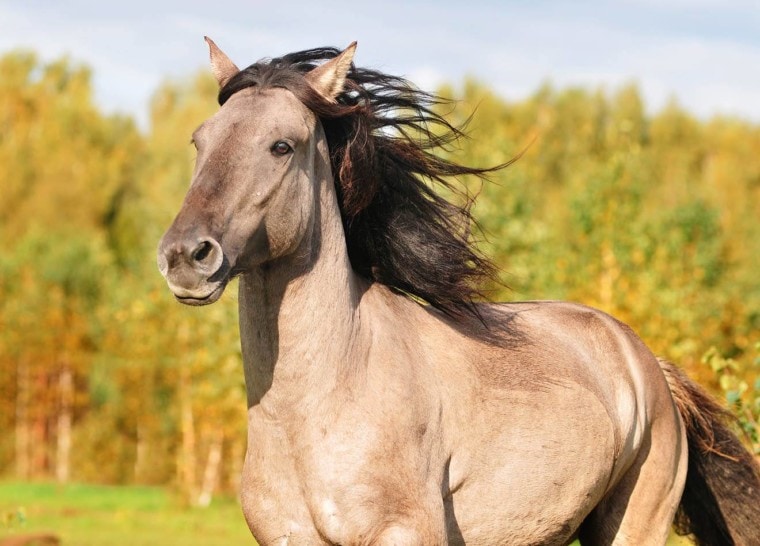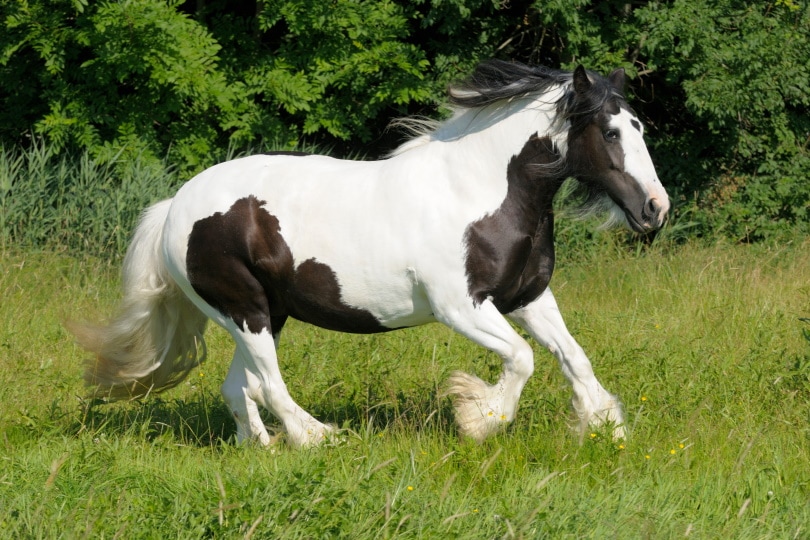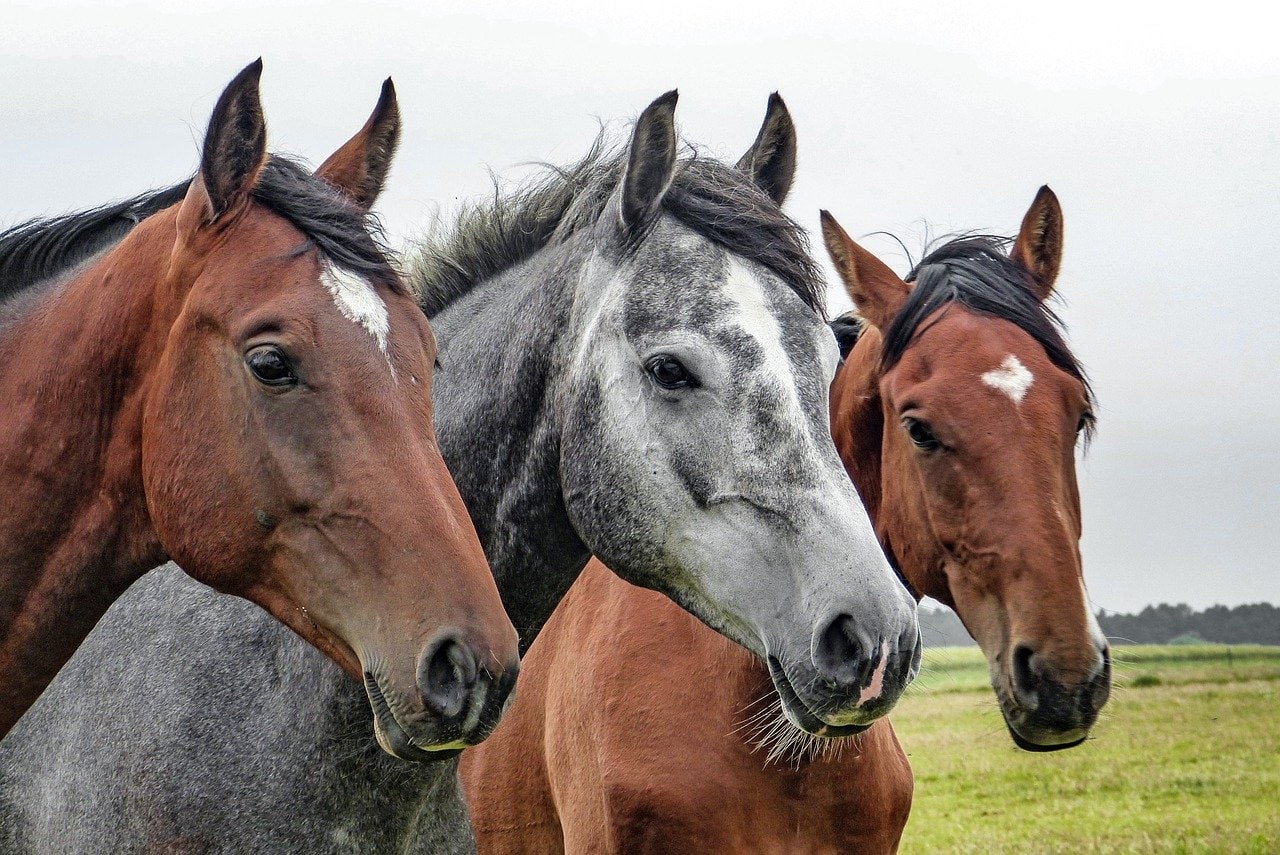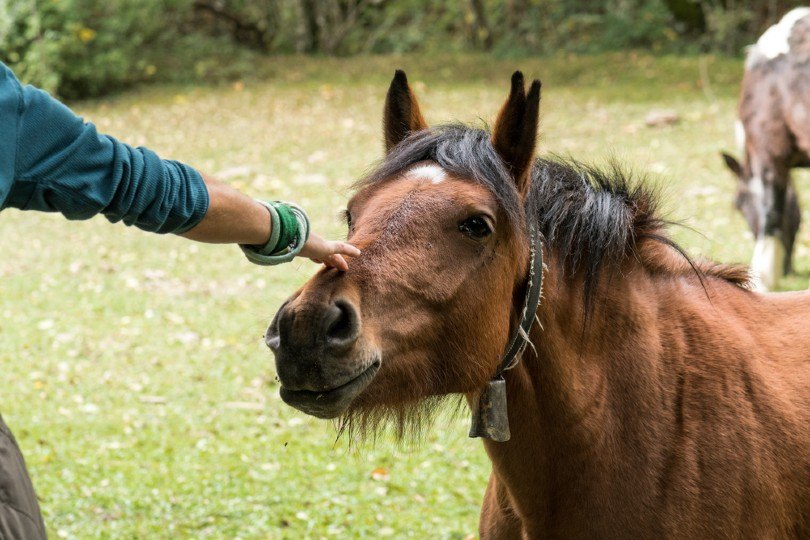
When it comes to our domesticated animals, few require as much space as a horse. Often weighing well in excess of 1,000 pounds, these creatures are massive and can stand more than six feet tall. They have long legs and tons of muscle that need to be exercised on a daily basis. Moreover, horses eat incredible amounts of plant matter, which requires ample land to provide. But exactly how much land is necessary to keep a horse healthy and happy? The simple equations are 400 square feet per horse for exercise and 2 acres per horse for grazing. But the truth is, it depends on several factors, which we’re going to discuss in this article. Hopefully, by the end, you’ll have a good idea of how much space your horses need, based on your own circumstances.
Land for Grazing Versus Space for Exercise
Your land needs will differ drastically depending on whether you plan to have your horse foraging on your land or if you’ll provide it with plenty of hay. If you’re feeding your horse with hay, then the space it needs is mainly for exercise. However, if you plan for your horse to get most of its forage through grazing, then you’ll need plenty of carefully managed land to ensure there’s sufficient food available. All this is to say that horses who graze will need more land that’s better managed than a horse that only needs the land for exercise.

Land Requirements for Grazing Horses
If you’re going to have your horse grazing in the pasture and expect this to make up most of its feed, then you need to start with a minimum of two acres. That’s not to say that a horse can’t survive on less space. If you expertly manage the land, then a horse could live with just an acre to forage on.
That said, horses are voracious eaters. A horse can easily put down 20 pounds of hay in a day, and in a full year, one horse will eat about 27 acres worth of hay or pasture. So, you can see how essential proper land management would be, particularly if you have less than two acres to work with.
Also, consider that different regions may have land that’s more or less appropriate for grazing. If you live in a dry climate without much growth, then your land might not be as good for supporting a horse’s food requirements. On the other hand, if you’re in a very lush environment, then your horses might not require as much space since they’re able to get more forage out of each acre.

Multiple Horses Means More Space
Of course, that two-acre minimum is a starting point for a single horse. Every additional horse will require more land. Your first horse needed two acres, but each additional horse should be ok with just one acre more. For example, if you have two horses, you want a minimum of three acres, and if you have four horses, you want to provide them with at least five acres.
See Also: Where Did Horses Originate From & How Did They Get Domesticated?
Land Management
Having land for your horses isn’t enough. You’ll have to actively manage that land if you want it to remain green, fertile, and able to support your horses’ needs. Overgrazing is a major concern that can lead to a dead field full of mud instead of lively grass. Too many weeds can result in runoff with contaminated water by disallowing the ground to properly absorb and drain as it should. A buildup of manure can lead to reduced grazing room and overall poor conditions. Avoiding these issues requires daily work and plenty of pre-planning.

Space Requirements for Exercise
When it comes to exercise, horses require surprisingly little space to remain healthy and get ample physical activity. Land for exercise doesn’t require as careful management as land that will be grazed on. In fact, there doesn’t have to be any grass on this land at all.
For one horse, you’ll need just 400 square feet of space for them to exercise, which is just a square that’s 20 feet across each way. More space obviously won’t hurt, but your horse can be healthy with just 400 square feet. Horses don’t need enough space to run every day, they just need to be able to move about freely and stretch their legs.
Keep in mind, additional horses will necessitate a larger area for exercise, unless, they’re kept in the exercise lot at different times. You’ll want to provide 400 square feet for each horse. So, if they’re kept together, two horses would need 800 square feet of space.

Legal Requirements in Your Jurisdiction
We’ve discussed a lot of great guidelines and rules that you should follow to ensure your horses are healthy, happy, and receiving adequate food. If you follow these guidelines, your horse should have ample space for grazing and exercise, but you still have to consider the legality of keeping horses where you live.
Some states and cities have requirements that must be met regarding how much space each horse needs. Make sure you do a little research into your local ordinances before you start constructing fences. You don’t want to plan and build an entire barn and pasture for your horse just to find out it doesn’t meet local regulations!
Final Thoughts
The amount of land your horse needs depends on several factors. If you want your horse to graze in the pasture, you’ll need to provide at least two acres of well-managed land for a single horse, plus another acre for each additional horse. But if you want to feed your horses hay and only need space for them to exercise, you can get away with just 400 square feet per horse. But before you start drawing up any plans, check your local laws and make sure you’re staying within the bounds of legality where you’re at!
Featured Image Credit: Olga_i, Shutterstock









